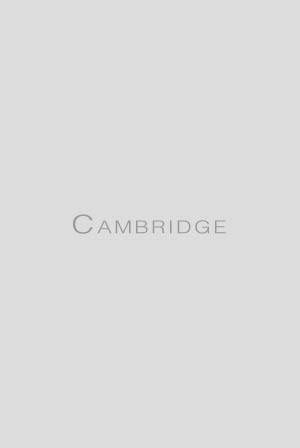Article contents
2. On Mr Darwin's Theory of the Origin of Species
Published online by Cambridge University Press: 16 March 2015
Extract
The position taken by Mr Darwin is, that all species have arisen by the natural process of ordinary generation. That the differences which we now see in them have arisen from slight variations in individuals having from time to time occurred, which have been perpetuated by inheritance, by successive stages and slow degrees, through unlimited spaces of time. Some of these slight variations he considers to originate in causes beyond our power of explanation, and which, although not the work of chance, we may call chance, for want of a better appellation—others to arise from habit, or from the excessive use or disuse of certain organs; but that when such a variation has once appeared, it is preserved by hereditary descent through a principle which he calls “natural selection,” and which he deduces as a corollary from the struggle for existence which we see constantly going on around us.
- Type
- Proceedings 1859-60
- Information
- Copyright
- Copyright © Royal Society of Edinburgh 1862
References
page 275 note * In quoting this, I do not at all mean to give it as a fair illustration of Mr Darwin's views. I only refer to it as indicating the extent to which he is prepared to go. The example here given I look upon (as I have reason to know Mr Darwin does himself) merely as an extreme and somewhat extravagant illustration, imagined expressly to show in a forcible way how “natural selection” would operate in making a mouth bigger and bigger, because more advantageous.
page 277 note * One of Mr Darwin's explanations of the absence of intermediate forms may be taken as his answer to this objection—viz., that these forms are, in point of fact, numerically weaker than the forms on each side which they link together, and thus are liable to be exterminated sooner than them. But, admitting the fact to be that they are less numerous, why should they be so under Mr Darwin's theory? With unlimited powers of modification, why should the intermediate forms always be originally fewer.
page 278 note * The point is one well worthy the attention of those who may have the opportunity of testing it. I have no doubt that many unscientific breeders could give at once instances which would bear upon it; but it will be observed that the question of whether they do bear upon it is one not unattended with difficulty: for instance, in our breeds of cattle how are we to know when a race or variety is reverting to its parent type—what was the parent form of our domestic cattle?—Quien sabe. But that they naturally retrograde or go away from the something which has been the aim set up in breeding to something else, certainly cannot be denied.
page 283 note * Mr Darwin himself remarks, that “two palæontologists, whose opinion is worthy of much deference, namely, Bronn and Woodward, have concluded that the average duration of each formation is twice or thrice as long as the average duration of specific forms” (p. 293). This opinion may be well-founded or not—I imagine it is; but it is difficult of application to the point at issue, on account of the real or possible intermissions which may have taken plaoe in these formations.
page 286 note * Although Mr Darwin here uses the observations of Schiodte upon blind insects as an illustration, his remarks (as he himself has had the kindness to inform me) are not meant to be confined to them, but also to be applied to the whole of the animals found in caves. But as his theory, if true, should meet every case, a clear flaw in even one would be fatal to the whole, and I would have tested it with these insects, whether they had been referred to by Mr Darwin himself or not.
- 4
- Cited by




